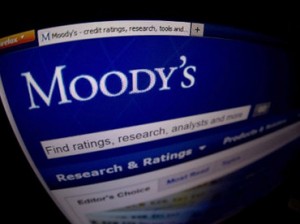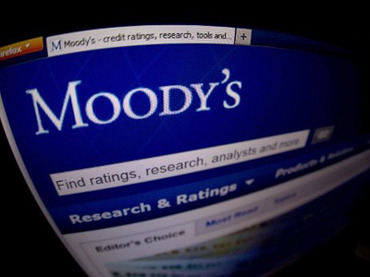
(AFP Photo)
The National Bank of Egypt, Banque Du Caire and Banque Misr received a B3 counterparty risk assessment from international rating agency Moody’s on Tuesday while the Commercial International Bank (CIB) and the Bank of Alexandria received a B2 rating.
The rating agency stated: “CR Assessments are opinions of how counterparty obligations are likely to be treated if a bank fails and are distinct from debt and deposit ratings in that they consider only the risk of default rather than the likelihood of default and the expected financial loss suffered in the event of default and (2) apply to counterparty obligations and contractual commitments rather than debt or deposit instruments.“
Last month, the local currency deposit ratings for the same five banks were upgraded. Ratings of the National Bank of Egypt, Banque Du Caire and Banque Misr surged from Caa1 to B3, while the rating of the CIB and the Bank of Alexandria climbed from B3 to B2.
The agency noted that that upgrade was due to the “improved operating environment in Egypt”. It added that the improved liquidity at banks and government capacity to support these banks has also contributed to the upgrade.
Moody’s also estimated a decrease in Egypt’s budget deficit to 10% of GDP this year, and a decrease in public debt to less than 90% of GDP, and raised Egypt’s credit rating after assessing the country’s economy.
The level of Egypt’s credit rating rose by one notch after a long-term loan from both foreign and local currencies, bringing each to B3, while keeping the Egyptian economy at “stable”, the agency highlighted.
On 15 May, international rating agency Standard and Poor’s revised its outlook on Egypt, raising it from stable to positive.
“At the same time, we affirmed our ‘B-/B’ long- and short-term foreign and local currency sovereign credit ratings on Egypt,” Standard and Poor’s said in their official statement.
“We now project real GDP growth at about 4.3% on average in 2015-2018, outstripping the 2.1% average in 2011-2014,” the agency added.




